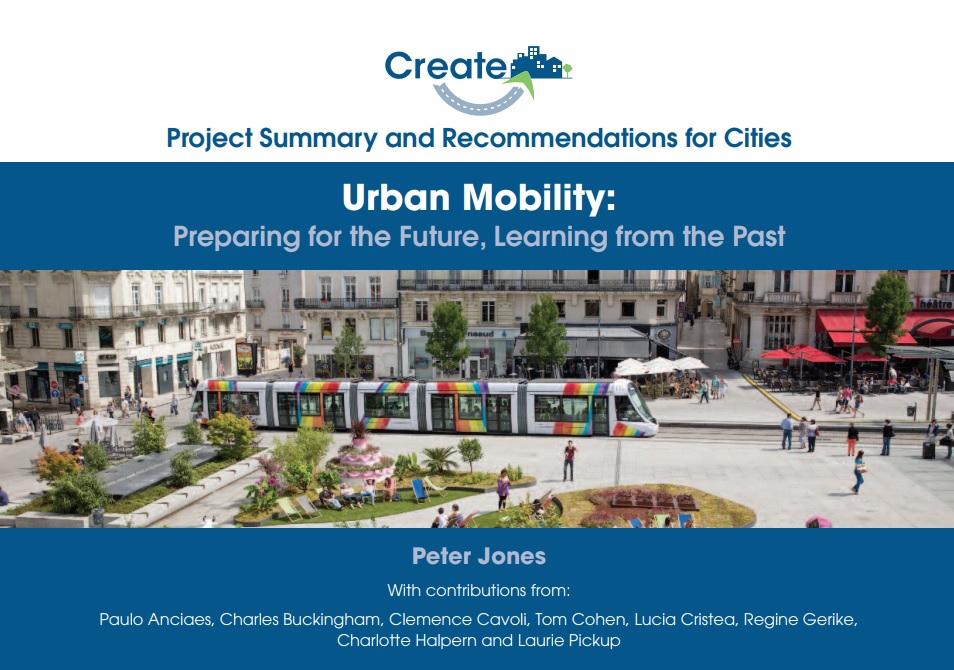Jones, P., Anciaes, P., Buckingham, C., Cavoli, C., Cohen, T., Cristea, L., Gerike R., Halpern C, Pickup L. (2018) Urban mobility: preparing for the future, learning from the past. CREATE project: Congestion Reduction in Europe – Advancing Transport Efficiency.
This document provides evidence and guidelines for practitioners involved in urban planning, particularly those developing or updating Sustainable Urban Mobility Plans. It summarizes lessons learnt from the CREATE project, funded by the European Union, which analysed transitions in urban mobility.

The main idea is that transport and urban policy priorities change over time. This change is related both to changes in people’s travel behaviour and in the type of policies introduced by governments.
The document identifies these changes through the experiences of five Western European cities over the last 50 years. The cities are London, Paris, Berlin, Vienna, and Copenhagen. It shows an historical tendency for, first, accommodating the growing use of private cars by buiding more and better roads. As the environmental and social problems of car use start to grow, the focus changes to providing for sustainable mobility, and more recently, to an interest in liveability and aspects of health and wellbeing.
The document shows how cities that are still providing for private car use can adapt their policies based on the experience of cities that have gone through the 3-stage process described above. It gives, as examples, 5 Eastern European and Middle Eastern cities: Vilnius (Lithuania), Bucharest (Romania), Skopje (North Macedonia), Talinn (Estonia), Adana (Turkey), and Amman (Jordan).
The document also identifies the indicators that have been used or could be used to identify how a city and its transport system is performing, considering the aims of mobility, sustainability, and liveability.
Next resource: STEPS-Havana Policy Briefs